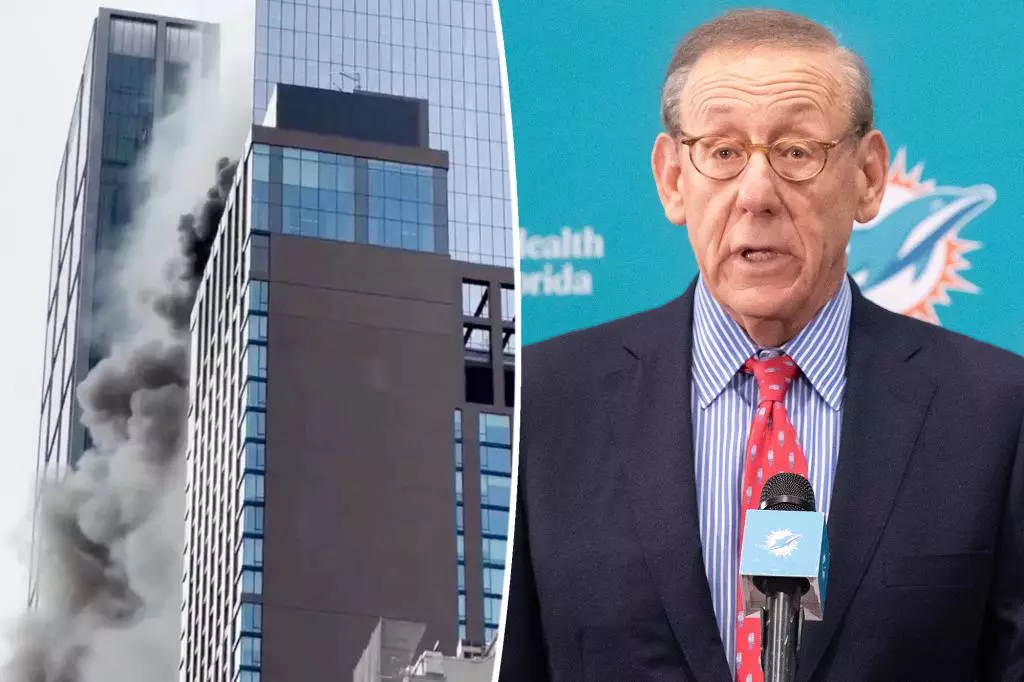In a dramatic turn of events, a powerful fire erupted at the Set apartment building in Hudson Yards, a property owned by billionaire developer Stephen Ross. The luxurious 44-story building, which boasts high-end amenities that blend residential comfort with corporate flair, became the center of attention for all the wrong reasons. The incident occurred during routine maintenance, specifically around the building’s cooling tower. While emergency responders acted swiftly and no significant structural damage or injuries were reported, the fire unveiled serious lapses in the building management’s crisis communication process, leaving residents feeling vulnerable and discontented.
As reports of the incident emerged, so did the consequential fallout. Following the fire, it was revealed that the building’s general manager had been dismissed—a move driven by what insiders described as an inadequate communication strategy during the emergency. Despite the building’s self-promotion as an establishment that incorporates top-tier services—communal working spaces, concierge amenities, and even I.V. drips—residents found themselves in the dark regarding essential evacuation protocols and real-time updates during the crisis.
Witness accounts pointed to a noticeable lack of communication; some residents only learned of the unfolding situation by observing concerned onlookers from an adjacent building. A failure to activate alarms or promptly alert residents left many feeling abandoned and uneasy, further exacerbating the sense of insecurity within a place typically marketed as a refuge for the affluent.
In an age defined by digital connectivity, one would presume that a building of such prestige would leverage technology for effective communication. However, residents resorted to their group chats to disseminate news about the fire, creating a scene that felt more akin to a campus rumour mill than a high-rise luxury residence. The irony of being informed via social media while residing in an upscale building that claims to redefine modern urban living was not lost on many.
Management eventually reached out to residents with an email acknowledging the shortcomings during the incident, stating that communication had “fallen short.” This transparency came too little, too late for many who experienced panic and confusion during the crisis, leading to further dissatisfaction with management.
The incident reveals a stark contrast between the opulent lifestyle promised to residents and the reality experienced during a crisis. Established protocols dictate that residents should remain inside their apartments unless directly threatened by fire; however, this guideline’s efficacy depends significantly on clear communication. The absence of alarms contributed to a feeling of complacency, as residents were left to decide for themselves what actions should be taken amidst the chaos.
This event has illuminated the underlying issues that often accompany luxury living. High expectations from well-heeled residents regarding safety and communication can sometimes lead to detrimental outcomes when those standards are not met. The irony here is that a building lauded for its cutting-edge approach to modern living faltered when it counted most, raising questions about management capabilities in high-pressure situations.
The consequences of the fire and subsequent leadership change at the Set serve as a cautionary tale for luxury rental properties and their management teams. The need for an emergency response protocol that includes immediate and effective communication is paramount. This incident is not merely a fleeting story; it highlights the critical importance of leadership accountability in residential environments, particularly when they espouse the values of premier service and innovative living.
Stephen Ross, with his distinguished background in high-end developments, must now grapple with the ramifications of this flawed incident. It serves as an essential lesson in crisis management, ultimately urging property managers to prioritize transparent, swift communication to ensure residents feel secure and informed, no matter the circumstances. In a world where luxury and sophistication are synonymous with safety and reliability, anything less could threaten the reputation and desirability of such prestigious properties.

